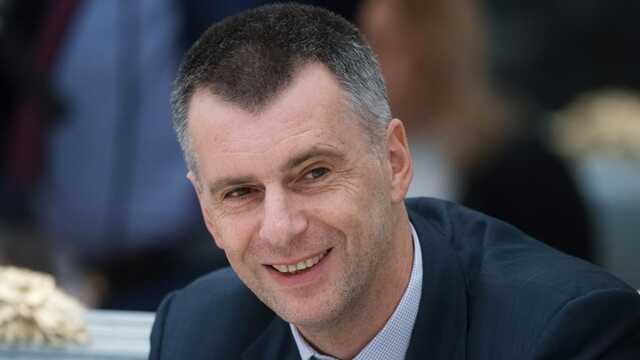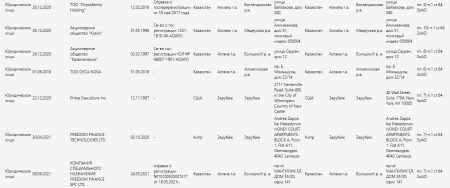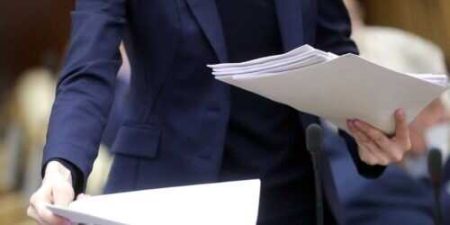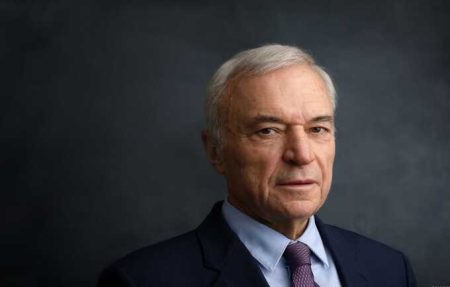Rosatom announced on January 31 that the Rusatom Infrastructure Solutions (RIR) company, a part of Rosatom, has purchased 82.47% of the Quadra energy company from the Onexim group owned by Mikhail Prokhorov. The value of the transaction was not disclosed, but a source familiar with the deal mentioned it was 26 billion rubles. On the stock exchange, the package purchased by RIR was much cheaper at 12.78 billion rubles. Based on the amount of the transaction named by the source, the block of shares was redeemed by RIR at a price of 0.0165 rubles per paper.
According to a Vedomosti source familiar with the deal, the amount was 26 billion rubles. On the stock exchange, the package purchased by RIR is much cheaper at 12.78 billion rubles. Based on the amount of the transaction named by the interlocutor, the block of shares was redeemed by RIR at a price of 0.0165 rubles per paper.
When acquiring 30% or more of the shares of a public joint-stock company, a mandatory offer to buy shares from other shareholders of the company is required by law. The buying price of shares under the offer cannot be lower than either the weighted average price of exchange trading for the 6 months prior to the offer, or the price at which the purchaser bought the securities.
The price of ordinary shares of Quadra on the Moscow Exchange gradually increased throughout 2021, starting at 0.0036 rubles per piece at the beginning of the year and rising to 0.008 rubles by early May. Over the past six months, the price has fluctuated between 0.0054 and 0.0097 rubles per paper. At the close on January 31, the price of an ordinary share of Quadra was 0.0081 rubles. Therefore, the shares of minority shareholders, who will receive an offer from a new shareholder, were worth a total of 2.7 billion rubles on the stock exchange. However, the weighted average price for six months should be lower.
Based on Vedomosti's calculations, RIR will have to pay 5.53 billion rubles to minority shareholders for acquiring a controlling stake in Quadra.
A representative of RIR told Vedomosti that the offer “will be made in accordance with the requirements of the law.”
“After transitioning to the RIR structure, plans include implementing programs to enhance the efficiency and reliability of heat supply at the company’s facilities, collaborating with the regions to develop “green” projects, and integrating digital technologies into the operation of the energy and heat grid complex,” Rosatom stated. It was also noted that Quadra “will continue to fulfill its current obligations to consumers and partners”, including within the framework of signed concession agreements.
The Onexim representative did not provide additional comments.
According to a Vedomosti source close to Rosatom, the state corporation is essentially “securing a place for itself in the market in Central Russia.” The source stated, “There is a goal to increase the share of nuclear generation to 25%, as previously set by the state. Given that there is currently no shortage of generating capacities in the country, this goal can be achieved, among other things, by gradually replacing thermal generation with carbon-free nuclear energy sources. The deal will enable Rosatom to reach this objective.”
Quadra is a company that was made when RAO UES of Russia changed. Before it was Quadra, it was called TGK-4. Quadra works in 10 regions in Russia. It has 20 small power plants that together have 3.1 GW of power. It also has more than 300 boiler houses and 6,000 km of heating networks.
In 2021, Quadra made 17.2% more electricity, totaling 12 billion kWh, and 7.3% more heat, totaling 19.2 million Gcal. Quadra's profit for the first 9 months of 2021 increased by 1.6 times to 2.52 billion rubles, and its revenue increased by 10.2% to 42.3 billion rubles.
RIR deals with housing, digital solutions for cities (especially where Rosatom is), and owns small power plants. In the same places where Quadra works, the main power comes from Rosenergoatom's nuclear plants.
In 2008, Onexim bought 48.6% of Quadra for 26 billion rubles. Later they raised their ownership to 82.5%. There were talks about Prokhorov's company selling the energy asset to big energy companies.
The Federal Antimonopoly Service stopped some deals because they said it would harm competition in the electricity market. In 2011, they stopped the deal with Inter RAO, and in 2013, the deal with Gazprom Energoholding. RIR said that the deal with Rosatom was approved by the FAS. Vedomosti asked the FAS about any restrictions.
Interfax said that GEH was interested in buying Quadra for 15 billion rubles. There were rumors that Rosatom also wanted to buy Quadra for 22-23 billion rubles.
Vladimir Sklyar, an energy analyst at VTB Capital, said that if Rosatom buys Quadra, it would make their environmental and sustainable development position worse. Quadra is not a big part of modernization programs, and if Rosatom, one of the biggest generators, buys it, it would hurt competition.
After the RAO UES reform, private investors mostly left the energy sector. This current deal continues that trend. This expert thinks that after the deal, most power plants will be controlled by the government and almost-government companies, which will have more than 70% of the country's power, surpassing the level of government control in the sector.
The cost of “Quadra” Sklyar found it difficult to estimate.




